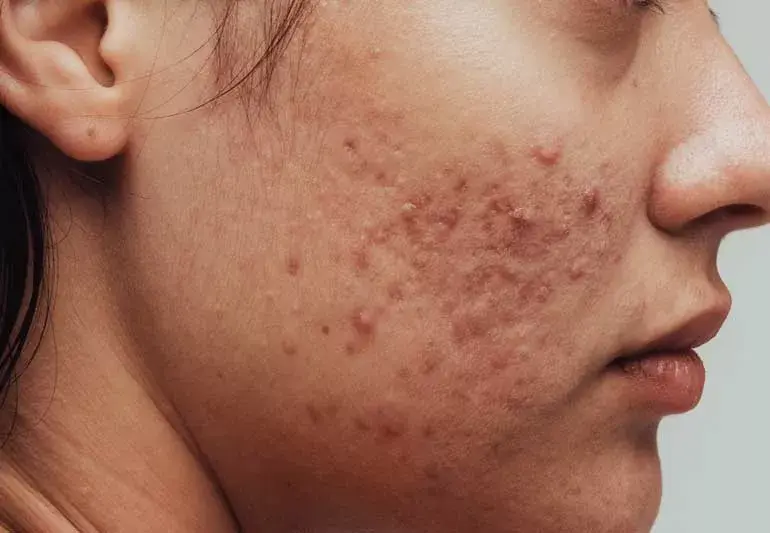Acne is a common skin condition that affects millions of people worldwide, regardless of age or gender. While it is often associated with adolescence, acne can persist into adulthood and significantly impact one’s self-esteem and quality of life. Fortunately, advancements in dermatology have led to a wide range of effective treatments that can help manage and control acne breakouts.
Acne occurs when hair follicles become clogged with oil and dead skin cells, leading to the formation of pimples, blackheads, and whiteheads. Factors such as hormonal fluctuations, genetics, diet, and stress can contribute to the development of acne. Additionally, bacteria known as Propionibacterium acnes (P. acnes) can exacerbate inflammation and lead to more severe forms of acne. Types of Acne: Acne can manifest in various forms, including:
- Whiteheads and Blackheads: These are non-inflammatory types of acne characterized by clogged pores. Whiteheads occur when the pore is closed, while blackheads occur when the pore is open and exposed to air, causing the trapped debris to oxidize and turn black.
- Papules and Pustules: These are inflammatory types of acne characterized by redness, swelling, and the presence of pus-filled lesions. Papules are small, tender bumps, while pustules are larger, pus-filled pimples.
- Nodules and Cysts: These are severe forms of acne that involve deep, painful nodules or cysts beneath the skin’s surface. They are more likely to cause scarring and require prompt treatment by a dermatologist.
Effective Acne Treatments: The key to effectively treating acne is to target its underlying causes while addressing individual skin concerns. Here are some common treatments recommended by dermatologists:
- Topical Treatments: Over-the-counter and prescription topical medications containing ingredients such as benzoyl peroxide, salicylic acid, retinoids, and antibiotics can help unclog pores, reduce inflammation, and kill acne-causing bacteria.
- Oral Medications: In cases of moderate to severe acne, oral medications such as antibiotics, hormonal contraceptives, and isotretinoin (Accutane) may be prescribed to control inflammation, reduce oil production, and prevent future breakouts.
- Procedures: Dermatological procedures such as chemical peels, microdermabrasion, laser therapy, and photodynamic therapy can help improve skin texture, reduce acne scars, and minimize the appearance of active lesions.
- Lifestyle Modifications: Adopting a consistent skincare routine, avoiding harsh or comedogenic products, practicing good hygiene, managing stress levels, and maintaining a balanced diet can all contribute to clearer skin and better acne management.
- Personalized Treatment Plans: Every individual’s skin is unique, so it’s essential to consult with a dermatologist who can assess your specific needs and customize a treatment plan tailored to your skin type, concerns, and lifestyle.
The Importance of Professional Guidance: While there are many over-the-counter acne treatments available, seeking professional guidance from a board-certified dermatologist is crucial for effectively managing acne, especially severe or persistent cases. At Dr. Sadhana Deshmukh’s Forever Yooung Dermatology Skin Hair Laser Clinic, one of the best acne treatment clinics in Mumbai, we accurately diagnose the underlying cause of your acne, recommend appropriate treatments, and monitor your progress to ensure optimal results while minimizing potential side effects.
In conclusion, acne is a challenging but manageable skin condition with a variety of effective treatments available. By understanding the causes of acne and seeking professional guidance from a dermatologist, you can take proactive steps towards achieving clearer, healthier skin and boosting your confidence and self-esteem. Remember that patience and consistency are key, and with the right treatment approach, you can regain control over your acne and enjoy a smoother, more radiant complexion.



Recent Comments